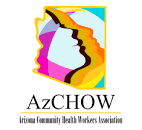For decades, injuries have been the leading cause of death among kids in the U.S. In fact, injuries are responsible for more deaths among children and adolescents than all other causes combined.
For more than 60 years, car crashes were the leading cause of injury-related death among kids. Beginning in 2017, firearm-related injuries took their place to become the most common cause of death from injury. Crossing Lines — A Change in the Leading Cause of Death among U.S. Children | NEJM
Are you a public health student looking for experience by examining firearm epidemiology in Arizona? AzPHA has an internship/research opportunity regarding firearm safety in Arizona. Gather and review data, speak with stakeholders, write a white paper, influence policy in Arizona. We need you!
Wanted: Researcher interested in firearm safety to author a white paper for AzPHA. Funding and internship available.
Turn your public health internship into change for Arizonans! AzPHA seeks a white paper on firearm safety. The right candidate will have an interest in data, epidemiology, and public health policy. Funding available.
Contact Kelli Donley Williams for more info: Kellidonley@gmail.com
Note: It’s the job Arizona Department of Health Services’ job to do this kind of epidemiological work. Sadly, because governor Ducey and current ADHS top leadership are so pro firearm, current ADHS leadership is unwilling to do this type of analysis. We’ll do it for them just like we’ve done throughout the COVID-19 pandemic.




